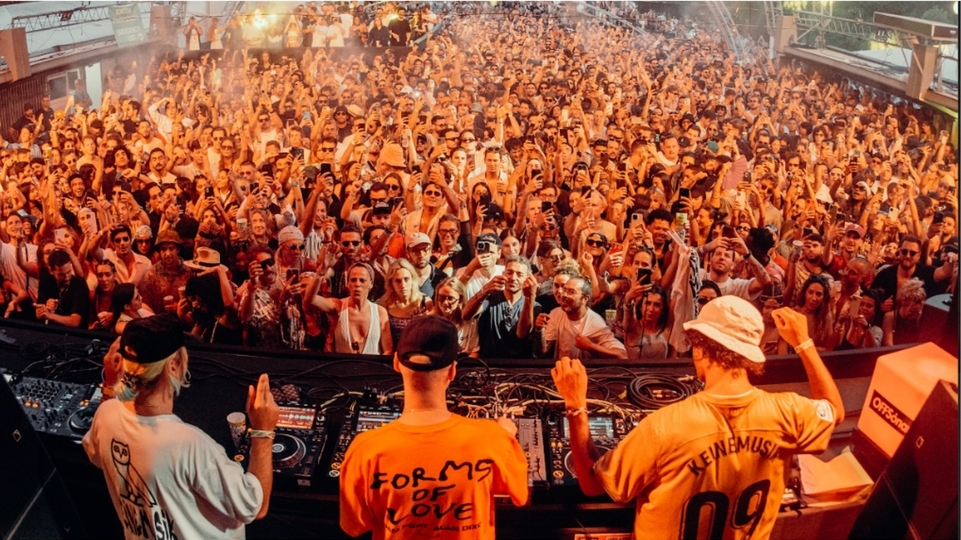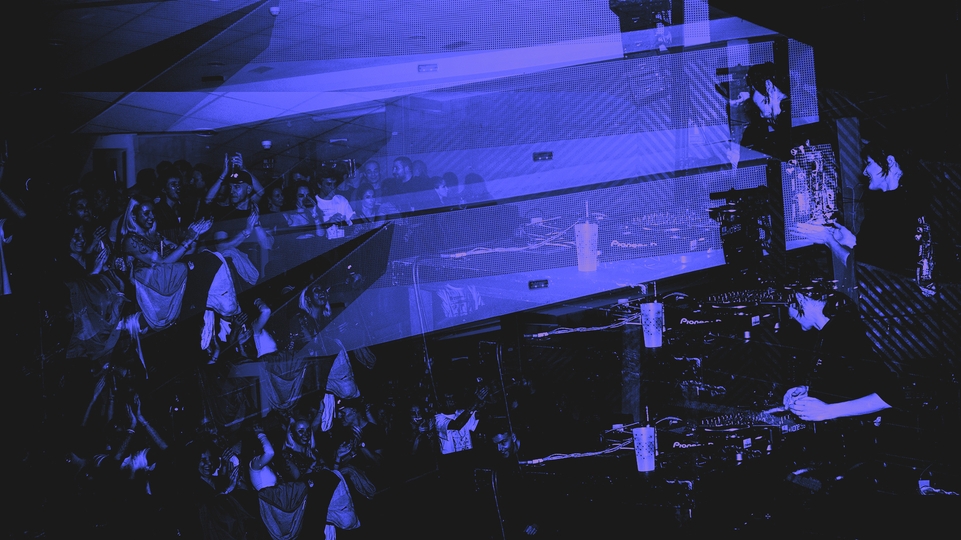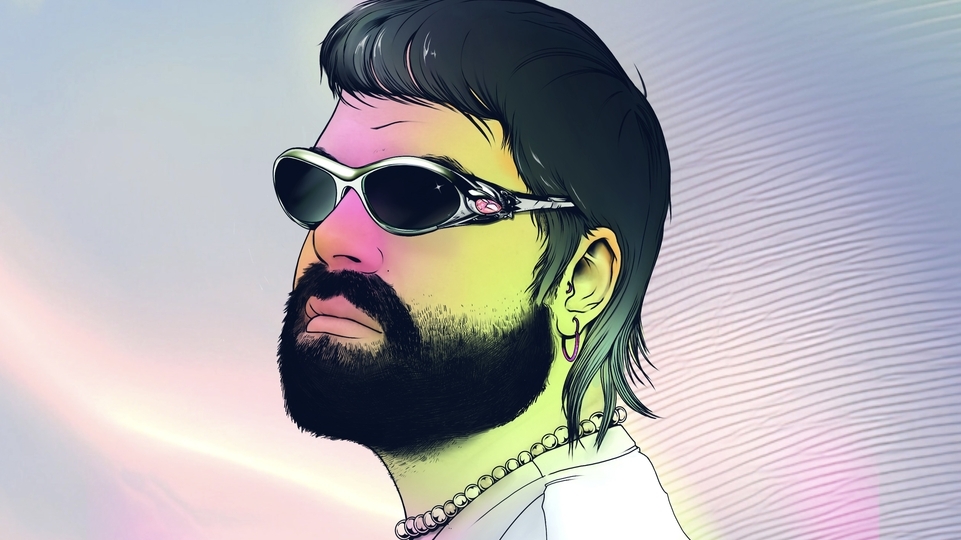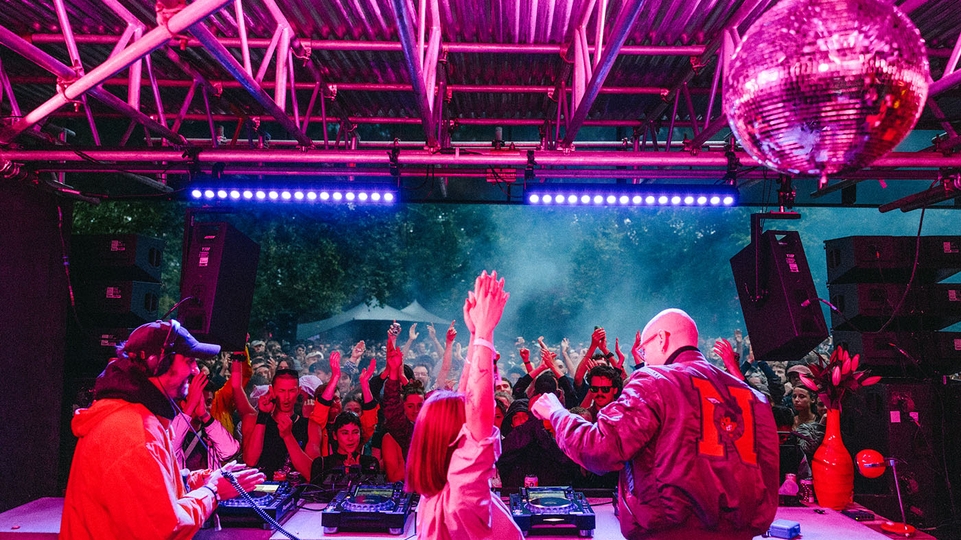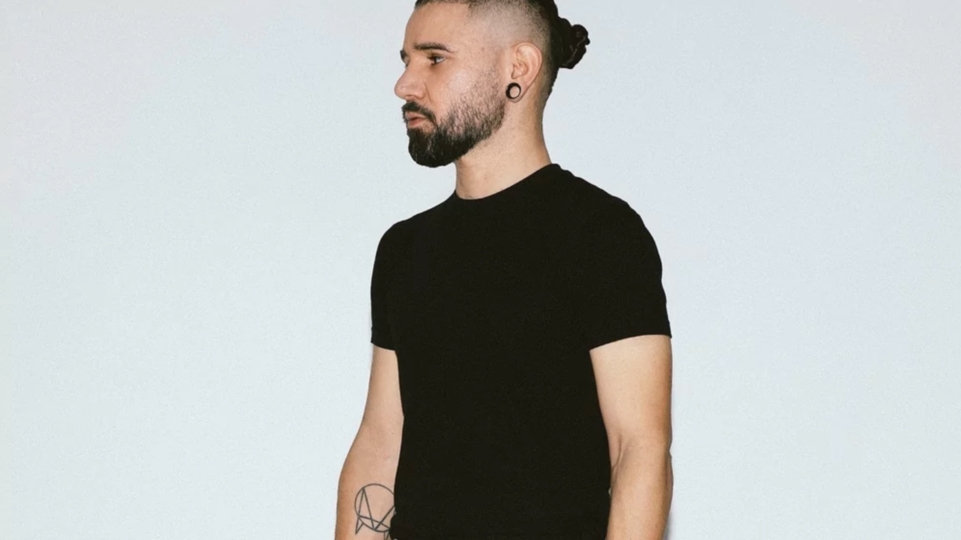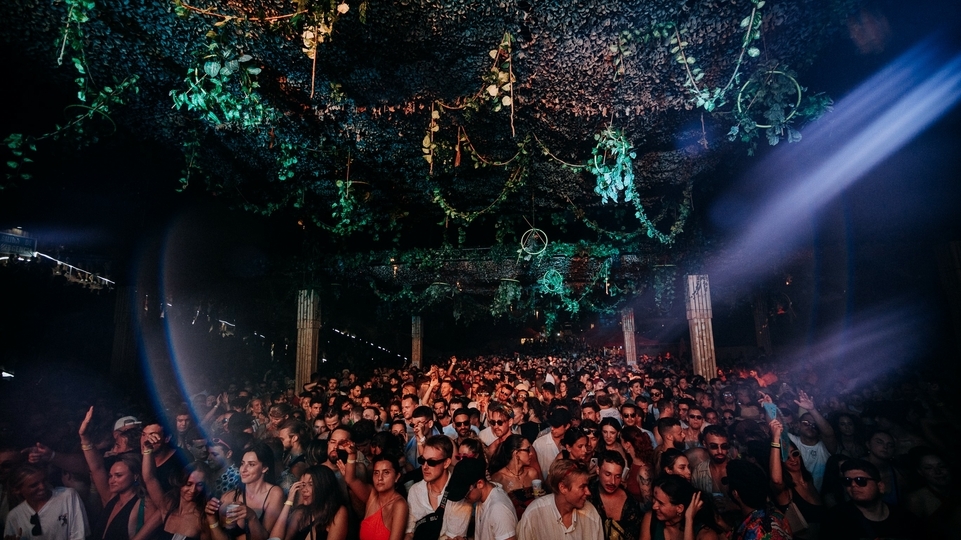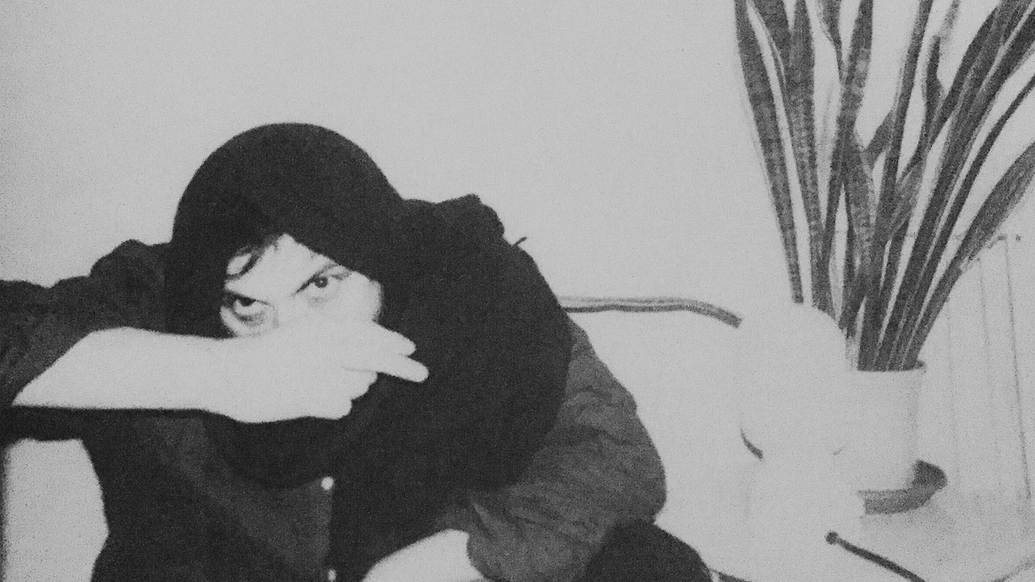
John Talabot: all in good time
Though best known as John Talabot, the Catalan DJ and electronic artist born Oriol Riverola's story is one filled with experimental aliases and collaborative projects that stretch from psychedelic techno through to otherworldly dub and kosmische. Here, he chats to Eoin Murray about documenting life through music, club residencies, long-anticipated LPs, his Hivern Discs label, and working at this own pace
“Everything I do is about documenting something,” says John Talabot over a video call from his home in Barcelona, perched in front of a floor-to-ceiling shelving unit filled with records. “Most of my albums are tiny moments of creation that I have between tours, or a project with a friend... The music is always related to some personal moments.”
Like a diarist or photographer, the Catalan DJ and electronic artist born Oriol Riverola chronicles life through the music he makes and plays, and he’s amassed a fairly vast catalogue over the years: ‘Sunshine’, his breakout single from 2009, and ‘ƒIN’, his 2012 debut LP for Permanent Vacation, made a splash with their blend of spacey disco, slow motion house and indie electronica; collaborative projects with with the likes of Swedish producer Axel Boman (as Talaboman) and Pional (as Lost Scripts) have borne steady crops of cosmic club fruit; to his esteemed Hivern Discs label, he’s contributed cuts of psychedelic techno, acid kosmische and chuggy, Balearic-leaning beats among releases from friends and peers. A taste for deep textures, alien melodies, crunching basslines and organic percussion pervades his sonic scrapbook; no matter what shape his creations take, his hallmarks are hard to miss.
Talabot’s recorded mixes have explored similarly personal themes and headspaces; his freestyle mixtape as DJ Bonclient, released in 2020 in celebration of Barcelona record store Discos Paradiso’s tenth birthday, was an unexpected gem. There’s nothing better than the real thing though, and he’s been playing out to plenty of packed dancefloors lately. When we speak on a bright Friday morning at the end of March, he’s settling into a rare two weeks off touring, having just finished a month-long residency at London club Phonox, interspersed with dates in Glasgow, Gent and Bogatá. After this break, he’ll hit the road again for a string of shows around Asia.
He’s grateful for his busy post-Covid calendar for many reasons, not least the boost it’s brought back to his creative life. “I was losing connection with people: the body-to-body thing that gives me the energy to make music,” he remembers of lockdown. “When I come home from a festival or a club, or when I see a concert and I'm surrounded by people dancing, that energy is what feeds me to create... It was two years without this. I was living out of memories.”
Though a lot of the music he wrote in and before 2020 has been scrapped — “The world changed, and I changed. There is stuff that I don't feel so attached to anymore” — there have been some jewels salvaged from the rubble. One of the final projects he worked on pre-pandemic was ‘La Casa del Volcán’, which was released in November 2020 under the Koraal alias via Nous'klaer Audio. The nine-track concept album was written and recorded over the course of three nights in November 2019 during a trip to Lanzarote; its rumbling drums, resonant chimes and billowing atmospherics a direct response to the island’s rugged, almost otherworldly landscape. Photographs he took during the trip adorn the cover and inner sleeves, adding to its journal-esque quality.
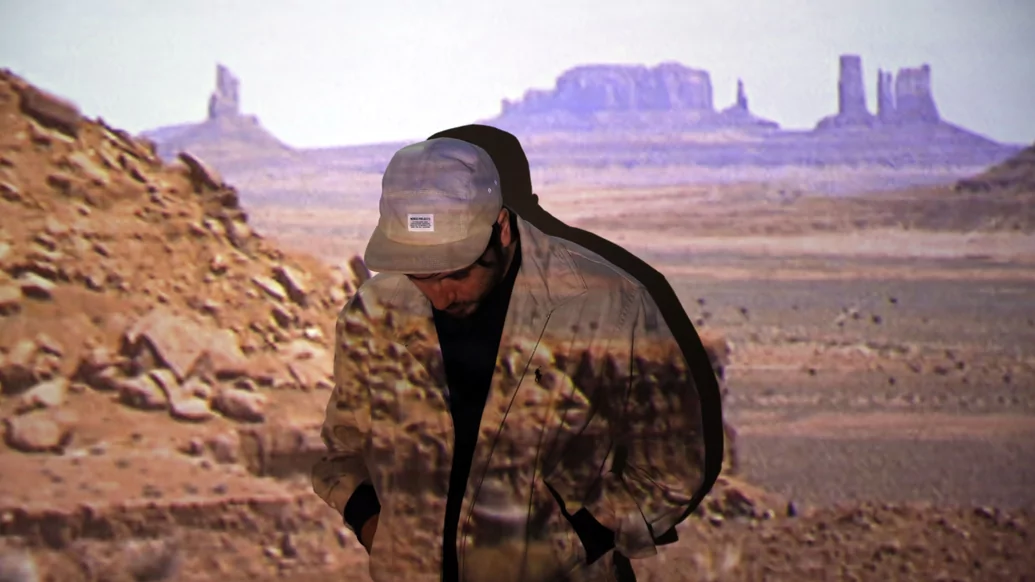
At one point during Covid, Talabot, his partner and two friends decamped to the mountains of Catalonia and, as they celebrated one of their birthdays, ended up creating a collection of trippy dub and downtempo jams, which they later released as Drames Rurales. Another, as-yet-unreleased project from the early days of lockdown captures the pent up energy of that moment, he says: “[I made] the loudest stuff I could, without being able to be loud.”
That anxiety and frustration of that time left lingering imprints on Talabot’s mind. “We've been through a trauma, and we still haven't analysed what kind of impact it’s going to have,” he says, citing words imparted to him by Boman. “A lot of things that we do, a lot of things that we’ve decided to do in the last year, they are a response to this. The amount of gigs I wanted to play, it was a response, because I missed it so much.”
In the darker moments of the pandemic, one DJ whose mixes brought Talabot a lot of comfort was Seoul-born, Berlin-based DJ Fart in the Club, who “has a special mind for music that I really connect with”. He invited her to be one of three guests at his Phonox residency, alongside his friend Rey Colino from the Kalahari Oyster Cult label and Idle Press boss DJ Sundae. Talabot warmed-up for his guests each night, having steered the ship solo for six hours at the opening party, gliding expertly through tempos, moods and timbres under the dark club’s low-hanging disco ball and strobing red and purple lights.
The experience took him back to his days as a resident at the Barcelona club, The Loft, where he played regularly through the 2000s under the d.a.r.y.l. alias. “I'm not so used to seeing the night from the perspective of a resident anymore,” he admits. “I’d lost track of being part of a venue, of getting there before it opens, taking care of the sound check, starting the mood. I really like it because it makes you connect with the venue and the sound of the club in another way.” It was there, opening up for the likes of techno royalty Robert Hood, Kevin Saunderson and Oscar Mulero, electroclash star Miss Kitten, and nu-disco duo Metro Area, that he developed the fluid yet unmistakable style of mixing he’s known for today. “That’s how you learn to play different genres, and you make your own taste [from that],” he says, simply.
Though the art of the warm-up set can be a delicate business, Talabot’s recently been impressed by younger artists he’s seen breaking free from the tried-and-tested patterns of your average club night. “Why are we all so attached to having slow tempos in the beginning of the night? Who started this idea?” he asks. “Why should we start slower and finish faster? Maybe the opposite would work... There is this preconception that fast is aggressive, but I don't see that...Tempo is a just a mind set, it's just a frame you put the music in”.
“Lately I want to be surprised by mixes,” he adds. “I want to feel like there's something unexpected going on... What’s going to be the next track? What is the new genre that’s going to get in? I think having a story to tell during a set, playing different music, but where everything has sense, is one of the most amazing things. It’s [about finding] the coherence inside the incoherence.”

Earlier this year, Talabot released ‘Cluster I’, the first of three records to come from his Mioclono project with Hivern Discs affiliate Velmondo, aka Arnau Obiols. Since 2016, the pair have met up (almost) annually around Christmas for a jam session at the Angel Sound Studios in Barcelona, bringing whatever gear they'd acquired that year and were keen to play around with. Their debut — an eight track journey into nocturnal new age and krautrock, brimming with low-tempo tribal drums, acid bass and fuzzy synths — is the result of their first session, with overdubs and edits made over the course of three years before it was completed in 2019. Unhurried, the project is a celebration of the creative process itself; they finally decided to release it after Talabot stumbled on a piece of artwork by local designer Helga Juárez and just knew it had to go on the cover.
The name Mioclono refers to the Spanish word for a myoclonic seizure: a brief, involuntary twitching or jerking of muscles that occurs in certain cases of epilepsy, which Talabot and Obiols have both been diagnosed with. In the studio, they would attempt to express this feeling — “like a lightning strike going through your body” — in their drums, while simultaneously channelling the sense of “confusion, and never knowing if you're in a safe place or not, never knowing if the lights of this place will affect you.”
They considered the ways in which people have attempted to understand epilepsy over millennia, with some ancient civilisations believing it to have been a spiritual or mystical phenomenon; a sense of unknowability still occupies much of the scientific research into the condition. “Epilepsy is something that defined my life in a weird way,” says Talabot. “Basically, you’re young, and they tell you: ‘you can’t do this, you can’t do this, and you can’t do this’... So everything is a limitation. And it’s weird, because doctors still know [so little] about it... The brain is still a mystery. It’s a crazy organ that we don’t understand. Even in the process of creation — like when you have an idea or not. You can be working on something for 20 hours and everything is wrong, and then the good idea will come while you’re cooking. Why? What triggers what?”
Talabot likens the brain to a modular synth system; through trying to understand his epilepsy through the lens of electronic patches and connections, the Mioclono project ended up developing "a bit more freedom, and craziness and funny swings," he says. "It was a way to get something together, and also to demystify [epilepsy] a bit.”
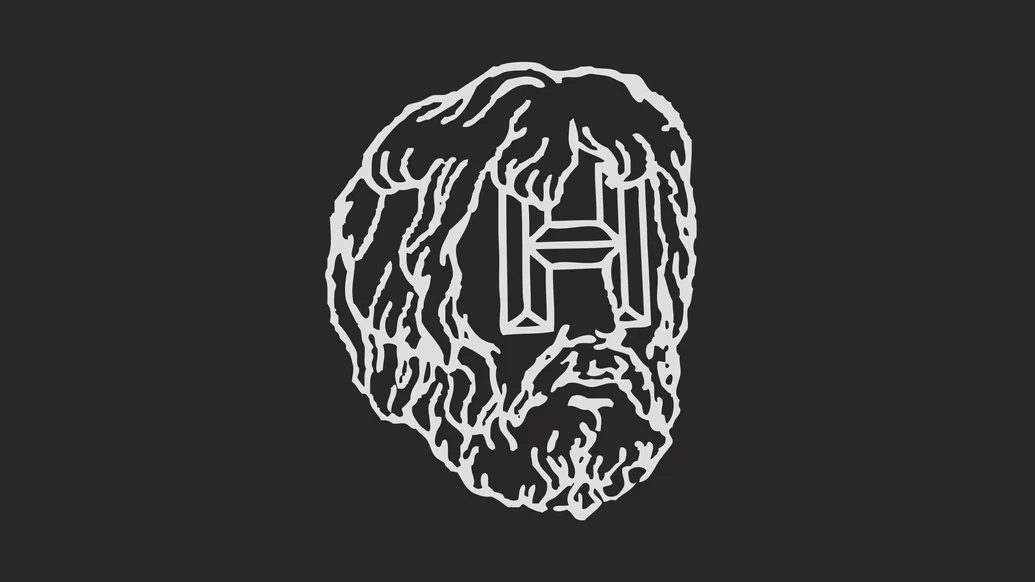
Like the first instalment, the next two albums in the Mioclono series will arrive on Hivern Discs, and will encompass a dub-inspired release, as well as a more “jazzy experimental” one. It’s a stylistic freedom that’s been at the core of the label’s catalogue since it launched in 2008. As it turns 15 — “Really!? I’ve stopped counting,” Talabot remarks — it promises more of the same quality in the coming months, including an album from Iro Aka, a recently-released EP from Oma Totem, and a compilation at the end of the year. Hivern also just returned to Primavera Sound in Barcelona and Madrid, hosting a stage takeover featuring label affiliates alongside dubstep pioneer Mala, CCL and Om Unit (Live). Its sub-labels are equally busy, with new music scheduled for its reissue imprint Música Màquina and its Pensaments Sònics platform for more conceptual electronic releases, including The Drift Institute's 'Damages And Their Slices' and something from African-American/French sound artist and experimental musician, NEXCIYA.
Meanwhile, Talaboman have just released two new EPs via their own Night Land Records, ‘Melbourne Bolero / Madhouse Dub’ and ‘Bosca Bosca / Bosco Bosco’. Comprising four thumping cuts dipped in trippy, dubwise atmospheres and soaked in Balearic sea foam, the tracks were finished a few years ago, but due to a series of “strange incidents, accidents and negligence”, are only now seeing the light of day. The pair are also working alongside a singer, and are hoping to book some studio time soon with a view to finishing their long-anticipated second album.
As for the equally-anticipated follow-up to ‘ƒIN’? Well, Talabot’s still waiting for the right moment. “I feel like a new John Talabot album is going to be a combination of all my other aliases together,” he says. “It's about getting to this point at the top of the mountain of other projects I’ve been involved in. It has a bit of Mioclono, it has a bit of Koraal, it has a bit of Talaboman. It has a bit of a lot of the stuff I’ve been doing in the past 10 years. And still, it is a continuation from ‘ƒIN’. I don’t know why, I don’t know how, but still, I can feel it. I’m going to try and finish it this year, possibly.”
The album was almost done three years ago, he explains, but the pandemic threw several spanners in the works. “I was lucky to not release it in 2020,” he says. “Because I couldn’t have toured it, or done the normal things you do. One of the reasons the album is a bit delayed is that, although I haven’t stopped doing music, I needed to feel the energy and intention of making a nice live show. If I do an album, I want to tour it properly in a live way. The sounds of the first album are like ‘classics’ for me, so I want to be able to do this mix of all the projects and set-ups, with all the knowledge of these ten years, and put them together in a live show.”
In the meantime, he’s about to start work on a sound exhibition for Mexico City’s Galerie Nordenhake, expanding on a CV of installation work that’s had his conceptual compositions and generative scores with the vocalist Maria Arnal appear at the Venice Biennale of Architecture and Barcelona’s Torre Glòries skyscraper. Needless to say, John Talabot/Oriol Riverola is a busy man, but he’s doing it all at his own pace, and wouldn’t have it any other way. “Things in music sometimes are too fast for me,” he smiles. “[I can make] one record, do other projects, get full of energy, have new ideas and new learnings, and make another album in ten years. For me, that’s fun enough.”
